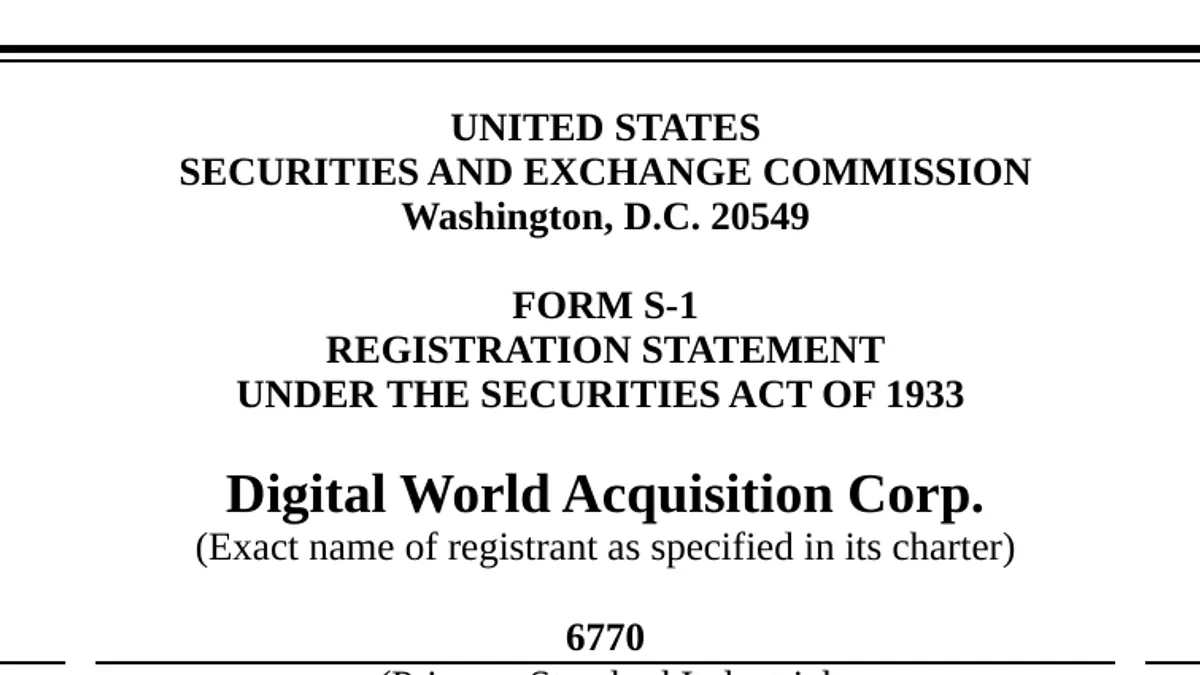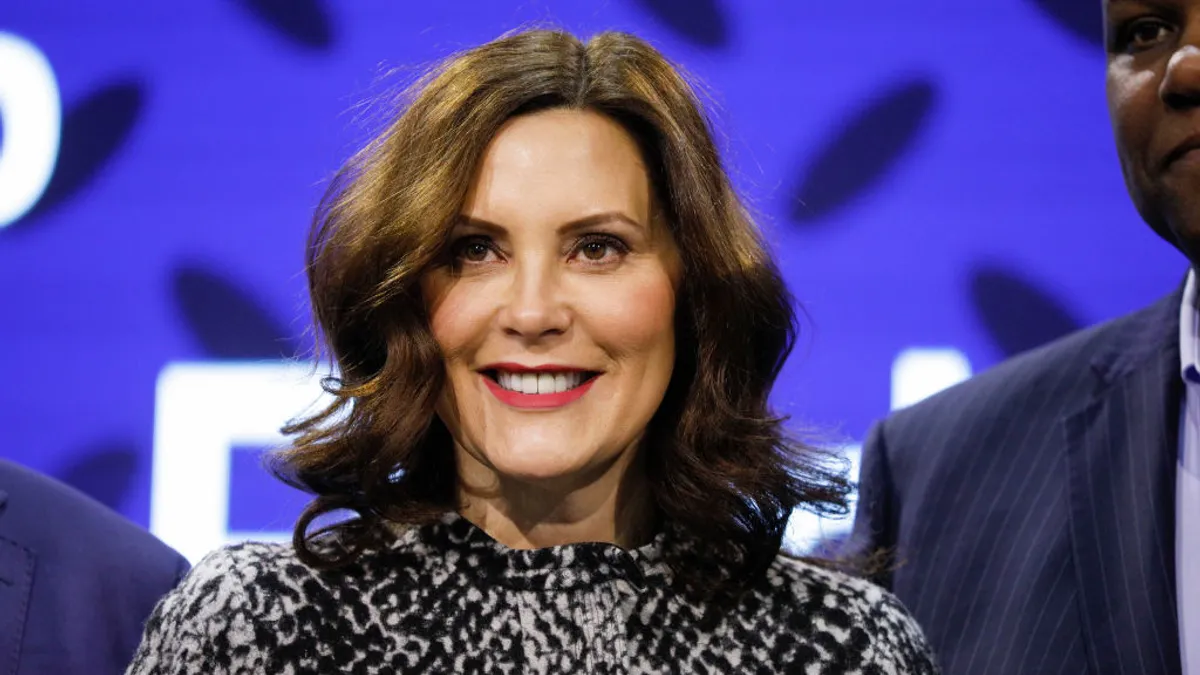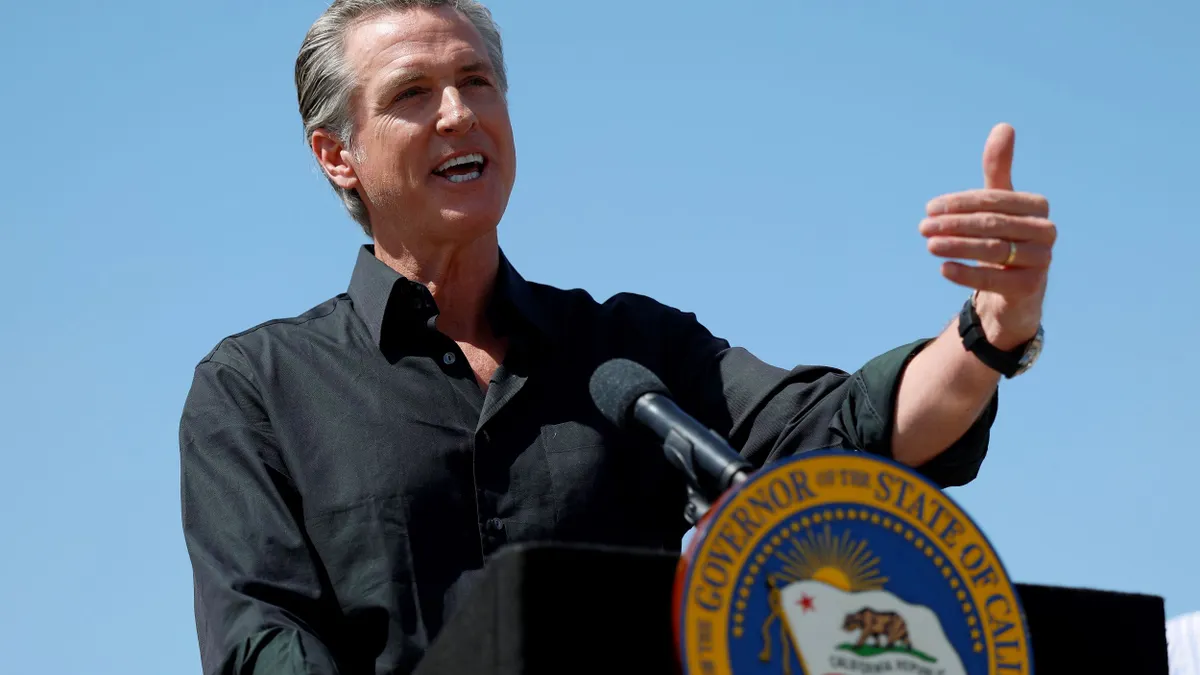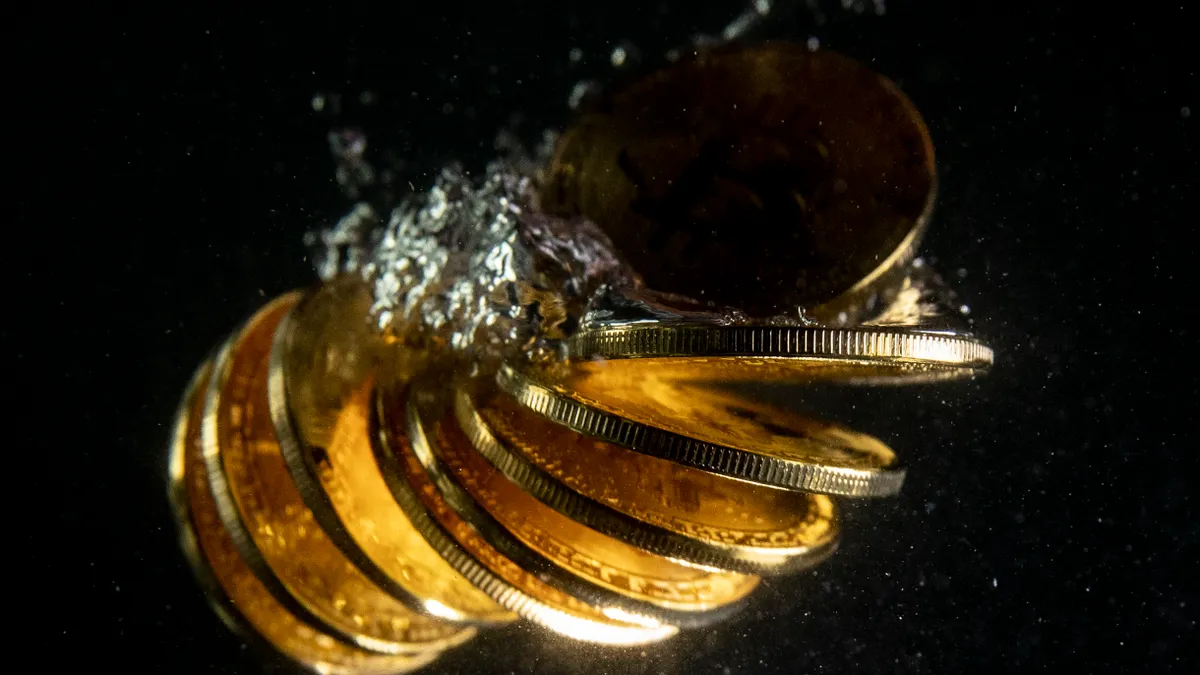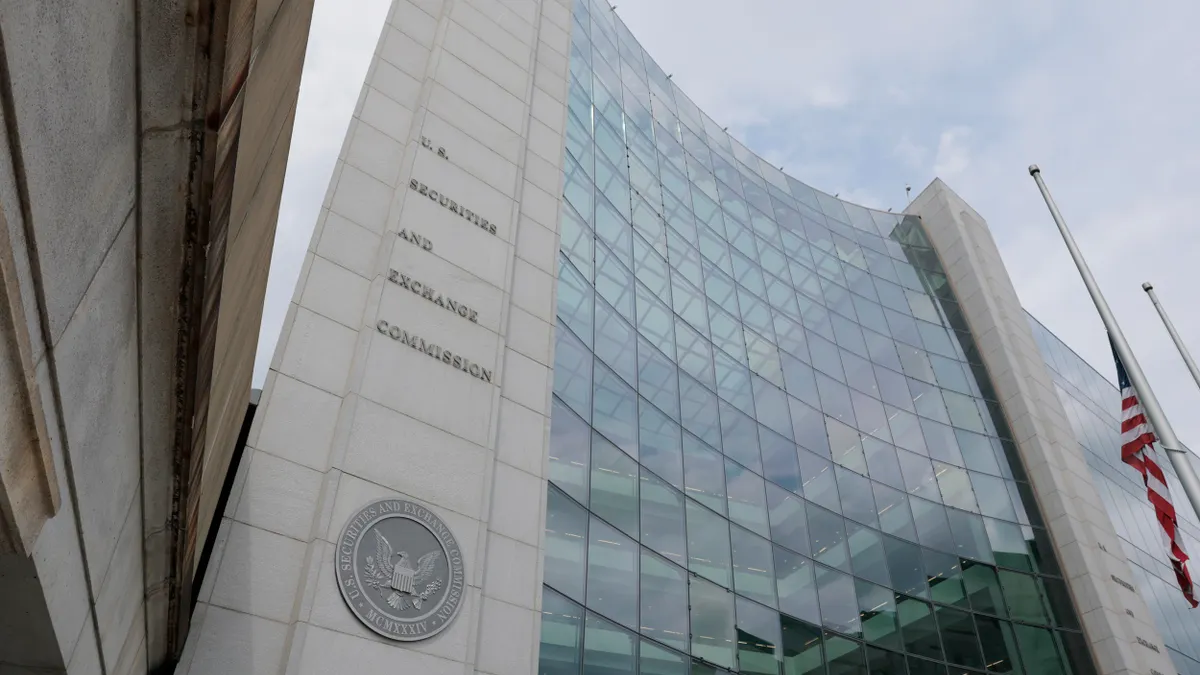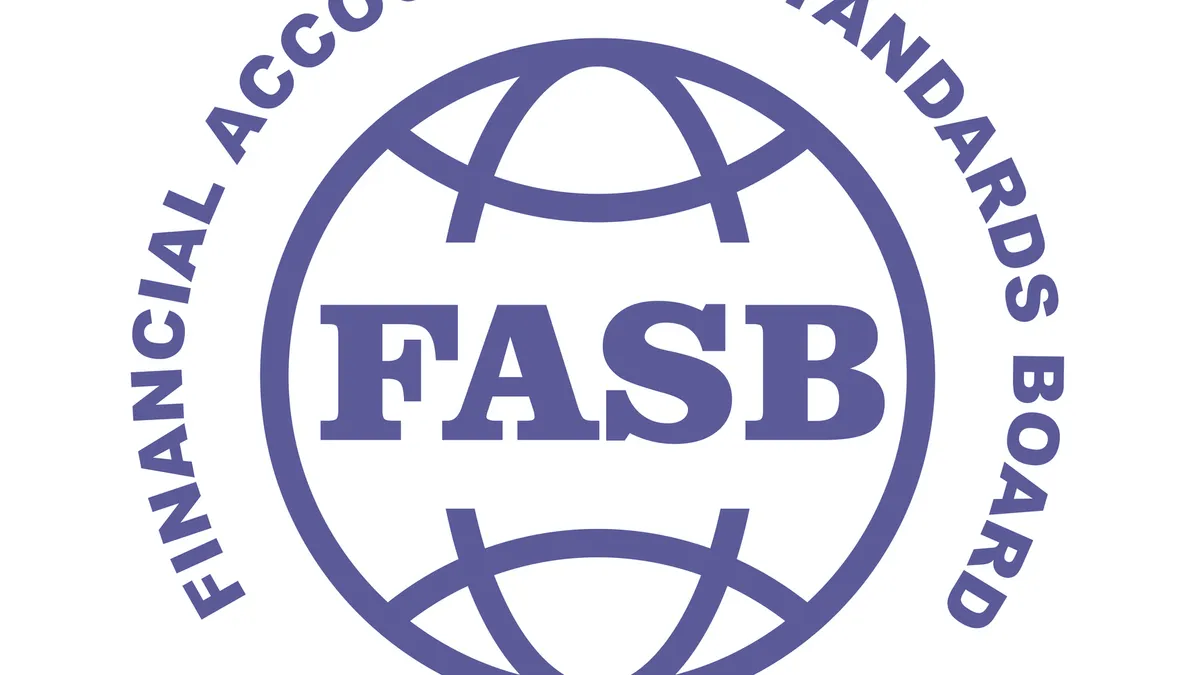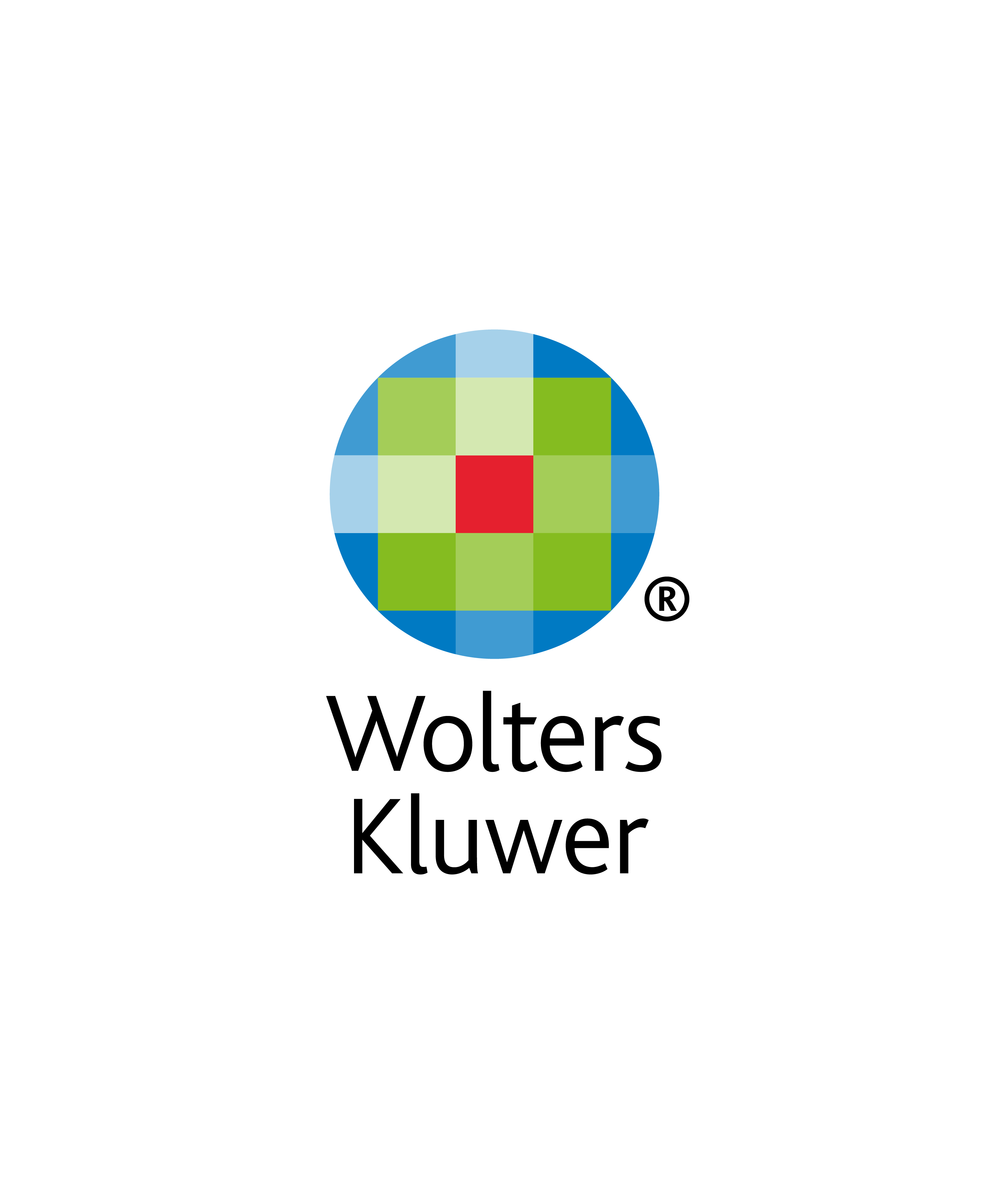The special purpose acquisition company that announced plans to merge with former president Donald Trump’s media company in October might have violated securities law by planning the merger before the SPAC went public, analysts said in a New York Times report.
As blank-check companies, SPACs are not to identify their merger target before they list on an exchange to prevent operating companies from using them as a backdoor way to go public. Pre-arranged deals are considered “backdoor” because operating companies, if they drive the deal before the SPAC is public, can leverage rules allowing SPACs to list without having to disclose detailed financial information.
To help ensure they are the companies driving the deal, SPACs must wait until after they go public to identify, and then negotiate with, the operating company as the merger target.
It’s this time restriction that Digital World Acquisition Corp., the SPAC that announced plans to merge with Trump’s company, might have violated, analysts told The New York Times.
Although in its May 25 SEC S-1 filing Digital World said it had no acquisition target in mind, Patrick Orlando, the SPAC’s CEO, had been in talks with Trump at least since March, the Times said. That's two months before the SPAC registered with the Securities and Exchange Commission (SEC), six months before the SPAC listed on Nasdaq and seven months before the merger was announced.
“The prospectus broadly denies that any talks have taken place,” Usha Rodrigues, a University of Georgia Law School professor who specializes in SPACs, told the Times. “If they were in fact engaged in discussions at the time of the prospectus, that raises questions regarding a potential securities violation.”
Investment plans
Talks between Orlando, a former Deutsche Bank derivatives trader, and Trump prior to May 25 were about financing the former president’s media company, Trump Media & Technology Group, which launched in February, but not through the Digital World SPAC, according to the report. Rather, it would be through another SPAC Orlando had launched, Benessere Capital Acquisition Corp., which had been trading on Nasdaq since early January.
Orlando positioned Benessere, which had raised about $100 million, as a vehicle for Trump to build his media company into a behemoth that would offer a social media app, films, events and technology services.
“The investor presentation about the planned deal envisioned the combined company … being worth $15 billion and rivaling tech giants like Netflix and the cloud divisions of Amazon and Google,” the Times reported.
After Trump reportedly nixed the idea, saying $100 million wasn’t enough to build what he wanted to do, Orlando suggested Digital World, which ended up raising three times that amount when it went public in September. Shortly after the merger was announced, the combined company was valued at about $2 billion.
Some finance specialists told the Times there’s no securities violation because the talks between Orlando and Trump were about Benessere, not Digital World.
“Mr. Orlando having discussed a deal between Benessere and Trump Media wasn’t the same as him discussing a deal on behalf of Digital World,” the Times reported the specialists saying. “Digital World wasn’t obligated to disclose Mr. Orlando’s prior talks.”
SEC action
It’s unclear if the SEC will look into the matter and, if it does, how it will treat the talks between Orlando and Trump. In addition to both SPACs being controlled by Orlando, they are both anchored by the same early-money investment firm, ARC Capital, a Shanghai-based company that specializes in helping Chinese companies list on U.S. stock exchanges, the Times says.
The talks could be seen as pre-IPO planning, which SPACs are not supposed to do, and there could also be a disclosure violation, since the S-1 said no target had been identified at the time of Digital World’s registration.
Given stepped-up scrutiny of SPACs by the SEC, which in May said it wants to strengthen investor protections by investigating how SPACs raise cash, a probe into the deal is possible.
“Each new issuer that enters the public markets presents a potential risk for fraud or other violations,” SEC Chair Gary Gensler said in testimony before a House subcommittee earlier this year.
Some investors in Digital World, not knowing the SPAC would merge with the Trump company, have already sold their shares to exit the deal.
“This was not a close call,” Boaz Weinstein, founder of Saba Capital, said of his decision to sell his company's shares right after the merger was announced. “I knew that for Saba the right thing was to sell our entire stake of unrestricted shares, which we have now done.”



